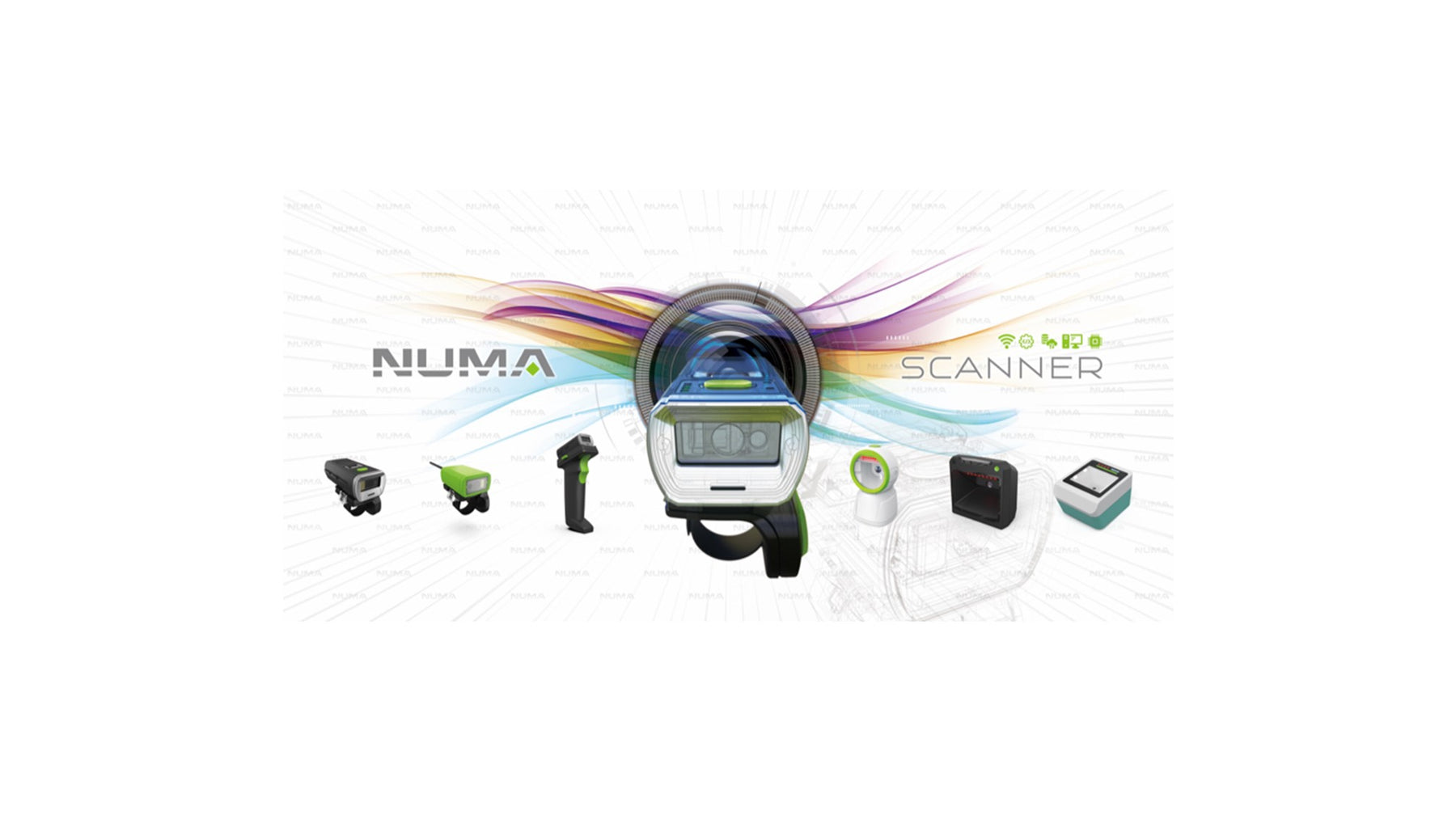Email: ashley@numa-tech.com
Email: sales@numa-tech.com

In today's fast-paced business environment, efficiency and accuracy are paramount. Companies across various industries are constantly searching for innovative solutions to streamline their operations and enhance productivity. One such game-changing technology is the wearable barcode scanner. These compact, hands-free devices are transforming how businesses manage their workflows, offering numerous benefits that traditional handheld scanners simply can't match.
What are Wearable Barcode Scanners?
Wearable barcode scanners are compact, lightweight devices designed to be worn on the body, typically on the wrist or finger. These scanners connect wirelessly to a mobile device or a central computer system, allowing workers to scan barcodes quickly and efficiently without having to hold a traditional handheld scanner. This hands-free functionality not only speeds up the scanning process but also allows workers to keep their hands free for other tasks.


The Advantages of Wearable Barcode Scanners
1. Increased Productivity:
Wearable barcode scanners significantly increase productivity by allowing workers to scan items while keeping their hands free. This is particularly beneficial in environments such as warehouses, distribution centers, and retail stores, where speed and efficiency are critical. Workers can pick, pack, and scan items in one seamless motion, reducing the time spent on each task.
2. Enhanced Accuracy:
With wearable barcode scanners, the likelihood of human error is greatly reduced. These devices often come with features such as real-time data validation and error alerts, ensuring that each scan is accurate. This level of precision is crucial in industries like healthcare and manufacturing, where mistakes can have serious consequences.
3. Improved Ergonomics:
Traditional handheld scanners can be bulky and cumbersome, leading to fatigue and strain during extended use. Wearable barcode scanners, on the other hand, are designed with ergonomics in mind. Their lightweight and comfortable design minimizes strain on the user's body, reducing the risk of repetitive strain injuries and increasing overall job satisfaction.
4. Streamlined Workflows:
The integration of wearable barcode scanners into existing workflows can streamline operations and improve overall efficiency. These devices can be seamlessly integrated with warehouse management systems (WMS), enterprise resource planning (ERP) systems, and other backend software, providing real-time data and insights that help optimize processes and decision-making.
5. Cost Savings:
Although the initial investment in wearable barcode scanners may be higher than traditional scanners, the long-term cost savings are substantial. Increased productivity, reduced errors, and lower ergonomic-related health costs contribute to a significant return on investment. Moreover, the durability and longevity of wearable scanners often result in lower maintenance and replacement costs.
Real-World Applications
Wearable barcode scanners are making a significant impact across various industries:
- Warehousing and Logistics: In warehouses, wearable barcode scanners streamline the picking, packing, and shipping processes. Workers can move freely and efficiently, reducing the time it takes to complete orders and improving overall throughput.
- Retail: Retail workers use wearable scanners to manage inventory, restock shelves, and assist customers more effectively. This technology enhances the customer experience by ensuring products are always available and accurately tracked.
- Healthcare: In healthcare settings, wearable barcode scanners improve patient care by ensuring accurate medication administration and tracking medical supplies. This reduces the risk of errors and enhances overall patient safety.
- Manufacturing: Wearable barcode scanners are used in manufacturing to track components, manage inventory, and ensure quality control. This technology supports lean manufacturing principles by reducing waste and improving efficiency.
Choosing the Right Wearable Barcode Scanner
When selecting a wearable barcode scanner, it's essential to consider factors such as:
- Compatibility: Ensure the scanner is compatible with your existing systems and software.
- Durability: Look for a device that can withstand the demands of your work environment, including dust, moisture, and impact resistance.
- Battery Life: A long-lasting battery is crucial to ensure the scanner can operate throughout a full shift without needing frequent recharges.
- Ease of Use: The scanner should be easy to operate and comfortable to wear, with intuitive controls and a user-friendly interface.
Must know product features of NUMA wearable barcode scanner NRS-60

Conclusion
Wearable barcode scanners are revolutionizing workflows across various industries by enhancing productivity, accuracy, and efficiency. As businesses continue to seek innovative solutions to stay competitive, the adoption of wearable barcode scanners is set to rise. Investing in this cutting-edge technology can provide a significant competitive advantage, driving operational excellence and positioning your business for long-term success. By embracing wearable barcode scanners, companies can truly revolutionize their workflows and achieve new levels of performance.
Find out more information of NUMA wearable barcode scanner, please visit NUMA website https://www.numa-tech.com/en/product/detail/NRS-60. Or please send your inquiry to sales@numa-tech.com for proposal and quote.